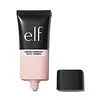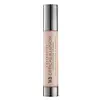What's inside
What's inside
 Key Ingredients
Key Ingredients

 Benefits
Benefits

 Concerns
Concerns

 Ingredients Side-by-side
Ingredients Side-by-side

Water
Skin ConditioningDimethicone
EmollientHdi/Trimethylol Hexyllactone Crosspolymer
Trimethylsiloxysilicate
EmollientGlycerin
HumectantC9-12 Alkane
SolventPolymethylsilsesquioxane
Cetyl PEG/PPG-10/1 Dimethicone
EmulsifyingPropylene Glycol
HumectantHydrogenated Polyisobutene
EmollientDimethicone/Vinyl Dimethicone Crosspolymer
Skin ConditioningSodium Chloride
MaskingPolyglyceryl-4 Isostearate
EmulsifyingPhenoxyethanol
PreservativeDisteardimonium Hectorite
StabilisingSilica
AbrasivePropylene Carbonate
SolventEthylhexylglycerin
Skin ConditioningCaprylyl Glycol
EmollientDisodium EDTA
Triethoxycaprylylsilane
Squalane
EmollientButylene Glycol
HumectantHydroxypropyl Cyclodextrin
MaskingCyclodextrin
AbsorbentPolydextrose
HumectantResveratrol
AntioxidantTocopherol
AntioxidantCamellia Sinensis Leaf Extract
AntimicrobialTitanium Dioxide
Cosmetic ColorantIron Oxides
Water, Dimethicone, Hdi/Trimethylol Hexyllactone Crosspolymer, Trimethylsiloxysilicate, Glycerin, C9-12 Alkane, Polymethylsilsesquioxane, Cetyl PEG/PPG-10/1 Dimethicone, Propylene Glycol, Hydrogenated Polyisobutene, Dimethicone/Vinyl Dimethicone Crosspolymer, Sodium Chloride, Polyglyceryl-4 Isostearate, Phenoxyethanol, Disteardimonium Hectorite, Silica, Propylene Carbonate, Ethylhexylglycerin, Caprylyl Glycol, Disodium EDTA, Triethoxycaprylylsilane, Squalane, Butylene Glycol, Hydroxypropyl Cyclodextrin, Cyclodextrin, Polydextrose, Resveratrol, Tocopherol, Camellia Sinensis Leaf Extract, Titanium Dioxide, Iron Oxides
Cyclopentasiloxane
EmollientDimethicone Crosspolymer
Emulsion StabilisingDimethicone/Vinyl Dimethicone Crosspolymer
Skin ConditioningSilica
AbrasiveEthylhexyl Hydroxystearate Benzoate
EmollientGlycerin
HumectantArgania Spinosa Kernel Oil
EmollientRosa Canina Fruit Oil
EmollientLimnanthes Alba Seed Oil
Skin ConditioningPolyglyceryl-3 Diisostearate
EmulsifyingDimethiconol
EmollientTriethoxycaprylylsilane
Glyceryl Caprylate
EmollientTocopheryl Acetate
AntioxidantWater
Skin ConditioningHydroxyapatite
AbrasiveSodium Olivoyl Glutamate
CleansingPhenoxyethanol
PreservativePropylene Glycol
HumectantCaprylyl Glycol
EmollientEthylhexylglycerin
Skin ConditioningMica
Cosmetic ColorantCI 77891
Cosmetic ColorantCI 77491
Cosmetic ColorantCyclopentasiloxane, Dimethicone Crosspolymer, Dimethicone/Vinyl Dimethicone Crosspolymer, Silica, Ethylhexyl Hydroxystearate Benzoate, Glycerin, Argania Spinosa Kernel Oil, Rosa Canina Fruit Oil, Limnanthes Alba Seed Oil, Polyglyceryl-3 Diisostearate, Dimethiconol, Triethoxycaprylylsilane, Glyceryl Caprylate, Tocopheryl Acetate, Water, Hydroxyapatite, Sodium Olivoyl Glutamate, Phenoxyethanol, Propylene Glycol, Caprylyl Glycol, Ethylhexylglycerin, Mica, CI 77891, CI 77491
 Reviews
Reviews

Ingredients Explained
These ingredients are found in both products.
Ingredients higher up in an ingredient list are typically present in a larger amount.
Caprylyl Glycol is a humectant and emollient, meaning it attracts and preserves moisture.
It is a common ingredient in many products, especially those designed to hydrate skin. The primary benefits are retaining moisture, skin softening, and promoting a healthy skin barrier.
Though Caprylyl Glycol is an alcohol derived from fatty acids, it is not the kind that can dry out skin.
This ingredient is also used as a preservative to extend the life of products. It has slight antimicrobial properties.
Learn more about Caprylyl GlycolThis ingredient is a silicone used to improve the texture of products and absorb oil. It does not get absorbed into the skin.
Like other silicones, Dimethicone/Vinyl Dimethicone Crosspolymer helps condition the skin by creating a barrier. In this sense, it can act as an emollient and trap moisture in.
This ingredient is a type of elastomer.
Learn more about Dimethicone/Vinyl Dimethicone CrosspolymerEthylhexylglycerin (we can't pronounce this either) is commonly used as a preservative and skin softener. It is derived from glyceryl.
You might see Ethylhexylglycerin often paired with other preservatives such as phenoxyethanol. Ethylhexylglycerin has been found to increase the effectiveness of these other preservatives.
Glycerin is already naturally found in your skin. It helps moisturize and protect your skin.
A study from 2016 found glycerin to be more effective as a humectant than AHAs and hyaluronic acid.
As a humectant, it helps the skin stay hydrated by pulling moisture to your skin. The low molecular weight of glycerin allows it to pull moisture into the deeper layers of your skin.
Hydrated skin improves your skin barrier; Your skin barrier helps protect against irritants and bacteria.
Glycerin has also been found to have antimicrobial and antiviral properties. Due to these properties, glycerin is often used in wound and burn treatments.
In cosmetics, glycerin is usually derived from plants such as soybean or palm. However, it can also be sourced from animals, such as tallow or animal fat.
This ingredient is organic, colorless, odorless, and non-toxic.
Glycerin is the name for this ingredient in American English. British English uses Glycerol/Glycerine.
Learn more about GlycerinPhenoxyethanol is a preservative that has germicide, antimicrobial, and aromatic properties. Studies show that phenoxyethanol can prevent microbial growth. By itself, it has a scent that is similar to that of a rose.
It's often used in formulations along with Caprylyl Glycol to preserve the shelf life of products.
Propylene Glycol is an odorless, colorless liquid. As a humectant, it helps skin retain moisture. It also aids in delivering active ingredients.
Another role of this ingredient is preventing a product from melting or freezing. Propylene glycol also adds antimicrobrial properties to a product, elongating product lifespan.
This ingredient is considered an organic alcohol and commonly added into both cosmetics and foods.
Those with sensitive skin or conditions may develop a rash when using this ingredient.
Learn more about Propylene GlycolSilica, also known as silicon dioxide, is a naturally occurring mineral. It is used as a fine, spherical, and porous powder in cosmetics.
Though it has exfoliant properties, the function of silica varies depending on the product.
The unique structure of silica enhances the spreadability and adds smoothness, making it a great texture enhancer.
It is also used as an active carrier, emulsifier, and mattifier due to its ability to absorb excess oil.
In some products, tiny microneedles called spicules are made from silica or hydrolyzed sponge. When you rub them in, they lightly polish away dead skin layers and enhance the penetration of active ingredients.
Learn more about SilicaTriethoxycaprylylsilane is a silicone used to bind and stabilize ingredients.
As an emulsifier, it helps prevent ingredients from separating. This can help elongate the shelf life of products.
Triethoxycaprylylsilane is often used to coat mineral sunscreens ingredients to help give a better feel. It also helps reduce oxidative stress in sunscreens.
Learn more about TriethoxycaprylylsilaneWater. It's the most common cosmetic ingredient of all. You'll usually see it at the top of ingredient lists, meaning that it makes up the largest part of the product.
So why is it so popular? Water most often acts as a solvent - this means that it helps dissolve other ingredients into the formulation.
You'll also recognize water as that liquid we all need to stay alive. If you see this, drink a glass of water. Stay hydrated!
Learn more about Water